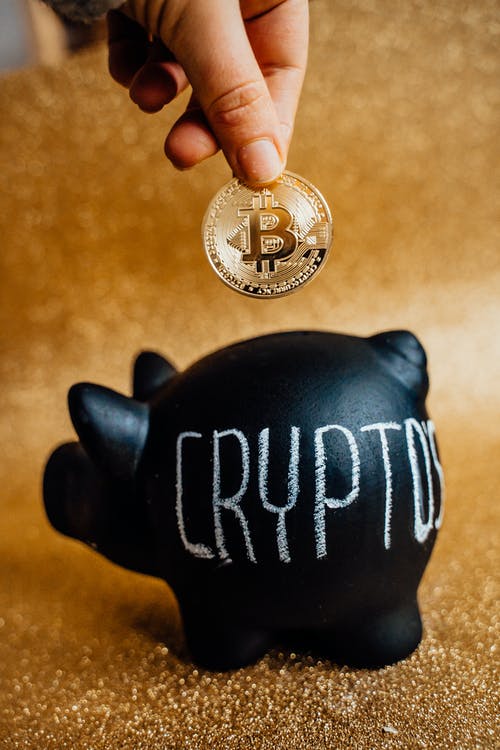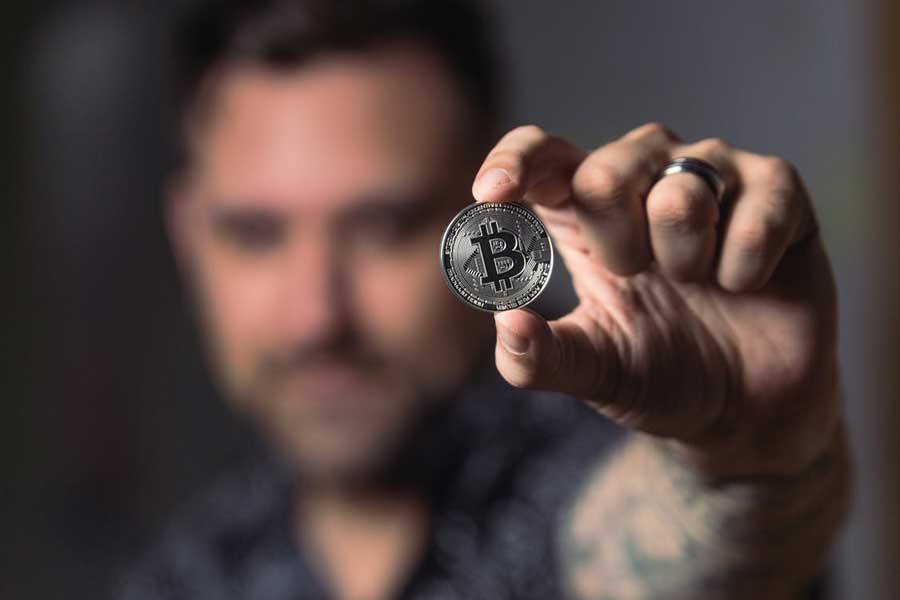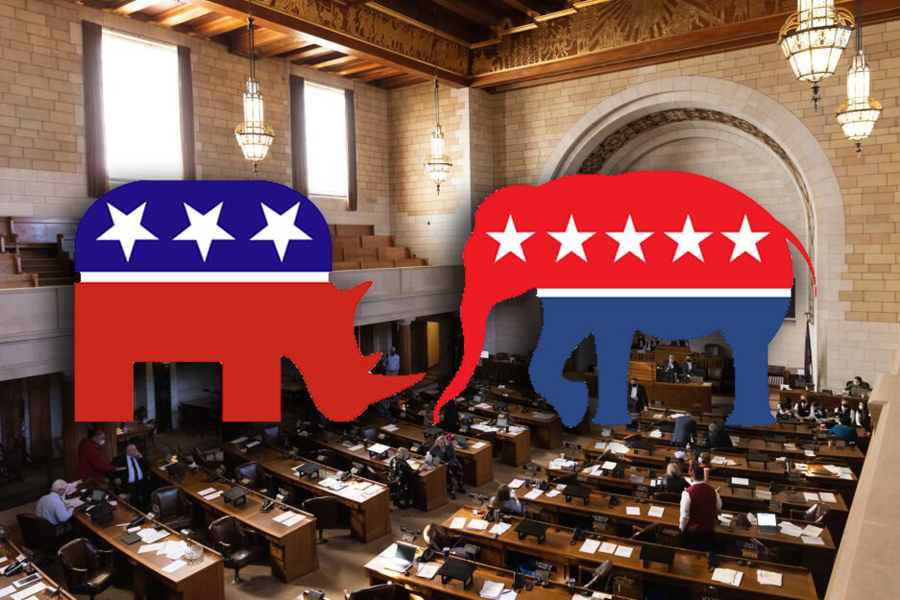Anne Pfeifer, Special Correspondent
Before the United States went off the gold standard in 1933,[i] our money was backed by gold and had intrinsic value. Due to mass inflation and other historic factors, however, the money system in America in the 20th and 21st centuries has been turned inside out. Instead of having the intrinsic value of a precious metal, like a gold Eagle or a silver dollar, our money now finds its value solely in the trust we place in it.
The ever growing and almost incalculable federal debt of the United States (now standing at more than $28.43 trillion dollars[ii]) is giving some concerned citizens cause to invest their assets elsewhere. Additionally, since our money system is based on trust, more and more Americans are now choosing to invest in cryptocurrency, arguably a ledger that supports that trust. Alex Kelly is one of these Americans, having been an avid crypto investor since 2015.
In 2016, Kelly wrote the article, “Why I Invested in Bitcoin,” in which he makes the bold case that “Bitcoin is the best ledger the world has seen.” Harkening back to that article now in a series of interviews at the end of 2021, Kelly still supports his initial thesis about Bitcoin. Additionally, he maintains that cryptocurrency in general is more deserving of our trust than the federal dollar.
in which he makes the bold case that “Bitcoin is the best ledger the world has seen.” Harkening back to that article now in a series of interviews at the end of 2021, Kelly still supports his initial thesis about Bitcoin. Additionally, he maintains that cryptocurrency in general is more deserving of our trust than the federal dollar.
Bitcoin is not subject to inflation. One of the most alarming characteristics of the dollar is that its value changes with the inflation rates instigated by the Federal Reserve.
During these interviews, Kelly explained his views on cryptocurrency, especially in light of the current crisis of trust we are facing in regard to our government-issued dollars. For Kelly, investing in Bitcoin is one answer to the question, “How do you want to save your money?” Looking at both sides of the coin, so to speak, he has come to favor different forms of cryptocurrency over the dollar for three reasons.
- To begin with, Bitcoin is not subject to inflation. One of the most alarming characteristics of the dollar is that its value changes with the inflation rates instigated by the Federal Reserve[iii] and by other government actions (such as the Biden Administration’s decision to restrict domestic oil and gas production). Any amateur economist would be foolish to assume that a dollar would have the same value in five years that it does today. The creator of Bitcoin wrote into the program for the cryptocurrency that only twenty-one million coins could ever be mined.[iv] Like gold and silver, Bitcoin and other crypto currencies are fundamentally scarce commodities. They have scarcity written into their source codes. Consequently, the value of Bitcoin will remain unadulterated by arbitrary values placed on it by inflation.
- Next, Kelly favors Bitcoin over the dollar because, in place of the centralized banking system of the Federal Reserve, it depends on a decentralized system. In other words, the Bitcoin protocol operates on an open source code that is accessible to all Bitcoin users, and the more users who join in, the better. (Bitcoin transactions are accessible to the public as an immutable ledger where the entire transaction history is permanently recorded.[v])
- Lastly, Bitcoin and other crypto currencies maintain and increase their value by the number of people who choose to be crypto investors. Much like the way social media platforms such as Twitter and Facebook gain credibility through popularity and widespread use, Bitcoin acquires its value through the number of people running the Bitcoin protocol. In other words, the more people who get into the network and make transactions, the more valuable it becomes.
Most people familiar with cryptocurrencies are aware that they are extremely volatile commodities. Kelly himself compares the experience of investing in Bitcoin and Ethereum (a platform for cryptocurrency) to that of prospectors making their way in the Wild Wild West: “Nobody really knows how this thing is going to work out. It could be the most revolutionary thing, or people could crash and burn. A man could successfully start a bank in the Wild Wild West, or he could walk out of a saloon and get shot.”
In other words, investing in crypto is like entering that territory of the unknown where our American predecessors once ventured forth to make their fortunes. The Wild Wild West was both a place of great promise and sudden death.
Aware of the high stakes factor incumbent upon the cryptocurrency market, Kelly in his 2016 article called investing in Bitcoin “an asymmetric bet[.]” In Kelly’s words, “It fails and becomes worthless[,] or it is widely adopted.” Since cryptocurrencies are still within the early stages of their development and acceptance, they are subject to short term fluctuations. In his interview with the author of this article on December 22, 2021, Kelly maintained that “short term (crypto trends) are totally unpredictable.”
For Kelly, however, investing in an unpredictable ledger like crypto is not a gamble but a measured risk. According to his experience of how crypto investments pay out, “The house may win, or I may win.”
 In spite of his original disclaimer that Bitcoin is an asymmetric bet, Kelly claimed in his interviews in December of 2021 that “Bitcoin is actually relatively stable.” Due to its popularity, it resembles a “reserve currency” that we can trust. “It is so big that it is not going anywhere. It can’t unravel overnight.” Consequently, Kelly opines that most people would do well to invest at least 1% of their income in cryptocurrency.
In spite of his original disclaimer that Bitcoin is an asymmetric bet, Kelly claimed in his interviews in December of 2021 that “Bitcoin is actually relatively stable.” Due to its popularity, it resembles a “reserve currency” that we can trust. “It is so big that it is not going anywhere. It can’t unravel overnight.” Consequently, Kelly opines that most people would do well to invest at least 1% of their income in cryptocurrency.
Kelly’s consulting work for Amazon and Google, in addition to his other online work, gives him the freedom to work from home or from anywhere in the world with internet connection. Not too long ago, he spent two weeks in Thailand, where he was able to monitor his crypto investments from the beach. The growing popularity of cryptocurrency since the inception of Bitcoin in 2009 is changing the face of the economy in America and the characteristics of the economies in other countries. Kelly points out the ramifications of this new ledger on our world, which is growing ever more dependent on the internet: “Crypto is potentially very disruptive to our society. It’s a new system.” As a ledger unique to the 21st century, should we accept it?
[i] History.com Editors, “FDR takes United States off gold standard,” history.com, published November 24, 2009, last updated June 17, 2020, https://www.history.com/this-day-in-history/fdr-takes-united-states-off -gold-standard.
[ii] “By the end of 2021, the federal government had $28.43 trillion in federal debt,” USAspending.gov, accessed December 30, 2021, https://datalab.usaspending.gov/americas-finance-guide/debt/.
[iii] Alexandra Sumner, “The Federal Reserve is the central bank of the US – here’s why it’s so powerful and how it affects your financial life,” businessinsider.com, updated November 1, 2021, https://www.businessinsider.com/what-is-the-federal-reserve.
[iv] Adam Hayes, “What happens to Bitcoin After All 21 Million Are Mined?” investopedia.com, updated October 7, 2021, https://www.investopedia.com/tech/what-happens-bitcoin-after-21-million-mined/.
[v] Adam Hayes, “Blockchain explained,” investopedia.com, updated November 4, 2021, https://www.investopedia.com/terms/b/blockchain.asp.




